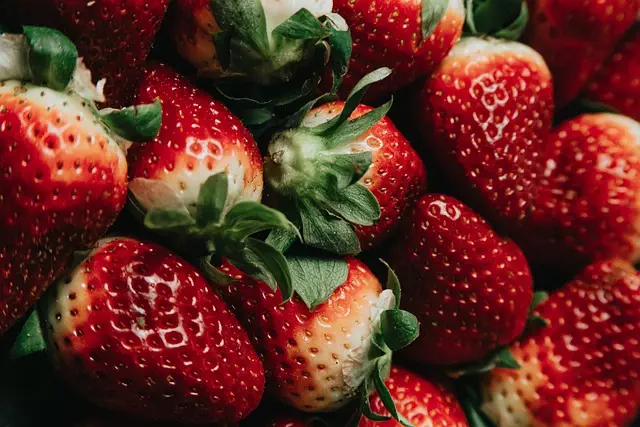The article discusses the significant shift towards sustainable and custom food packaging solutions within the snack industry. In response to consumer demand for environmentally friendly options, manufacturers are increasingly turning to biodegradable and compostable materials, such as plant-based plastics from corn starch and sugarcane, which offer comparable barrier properties while being more sustainable at end-of-life. These advancements align with a broader trend towards personalized packaging that stands out on shelves and caters to specific consumer tastes through digital printing. Additionally, smart technologies like sensors and augmented reality are being integrated into these packages for detailed product information, nutritional facts, and responsible disposal guidance. The industry’s focus on sustainability is evident in the adoption of eco-friendly materials that aim to reduce the carbon footprint associated with snack packaging. This commitment not only supports ecological preservation but also enhances brand reputation and trust, potentially leading to increased consumer loyalty. The evolution of food packaging solutions is marked by a fusion of sustainable practices, customization, and technological innovation, setting a precedent for other industries to follow and offering ample opportunities for future advancements in this field. Keywords: sustainable food packaging, custom food packaging solutions.
Navigating the dynamic landscape of snack consumption, innovative food packaging solutions are revolutionizing how we enjoy our favorite treats. As consumer awareness and preferences evolve towards sustainability, the snack industry is adapting with eco-conscious options that don’t compromise on freshness or flavor. This article delves into the transformative role of custom food packaging designs in enhancing brand recognition while addressing environmental concerns. From biodegradable materials to advanced technologies, the future of snack packaging is both responsible and refreshingly efficient. Join us as we explore how global trends are shaping the next wave in sustainable food packaging for snacks.
- Innovations in Food Packaging Solutions for Snacks
- The Rise of Sustainable Food Packaging in the Snack Industry
- Custom Food Packaging Designs: Enhancing Brand Recognition and Freshness
- Material Matters: Biodegradable and Compostable Options for Eco-Friendly Snack Packs
- The Role of Advanced Technologies in Snack Food Packaging
- Global Trends and Consumer Preferences Shaping the Future of Snack Packaging
Innovations in Food Packaging Solutions for Snacks
Innovations in food packaging solutions for snacks have gained significant traction, particularly as consumers and manufacturers alike seek sustainable alternatives to traditional packaging. The shift towards eco-friendly materials is driven by the growing awareness of the environmental impact of plastic waste. Sustainable food packaging now encompasses a variety of biodegradable or compostable options, such as plant-based plastics and bio-composites derived from renewable resources like corn starch or sugarcane. These materials offer similar barrier properties to conventional plastics while being more environmentally benign upon disposal.
Moreover, custom food packaging solutions are becoming increasingly popular in the snack industry, allowing brands to stand out on the shelves and tailor their packaging to specific product needs or consumer preferences. Digital printing advancements have made it feasible for companies to produce personalized packaging with high-quality graphics and text, ensuring product freshness while also engaging consumers with vibrant designs that convey brand identity and values. This customization extends beyond aesthetics; it also includes functionality, with packaging designed to optimize shelf life, maintain snack quality, and minimize food waste. The integration of smart technologies, such as sensors and augmented reality, is further enhancing these packages by providing consumers with real-time information about the product’s origin, nutritional content, and even how to recycle the packaging properly after use. These innovative approaches underscore a commitment to sustainability and consumer satisfaction in the evolving landscape of food packaging solutions for snacks.
The Rise of Sustainable Food Packaging in the Snack Industry
The snack industry has witnessed a significant transformation in recent years, with an increasing emphasis on sustainable food packaging solutions. As environmental concerns have risen to the forefront of public awareness, manufacturers and brands are actively seeking innovative custom food packaging options that minimize ecological impact. These sustainable packaging initiatives aim to reduce the carbon footprint associated with traditional packaging materials, such as plastics and non-recyclable composites. The shift towards eco-friendly alternatives is not merely a response to consumer pressure but a strategic move to align with global sustainability goals. Sustainable food packaging, characterized by its biodegradability or recyclability, is becoming the norm rather than the exception in the snack market. This evolution is driven by advancements in material science and design, enabling packages that not only protect products during transportation and shelf life but also ensure they leave a lighter environmental footprint. The integration of these sustainable practices not only benefits the environment but also enhances brand reputation and consumer trust. As such, the snack industry is at the forefront of adopting these forward-thinking packaging solutions, signaling a commitment to a more sustainable future for both the industry and our planet.
Custom Food Packaging Designs: Enhancing Brand Recognition and Freshness
In the realm of snack foods, custom food packaging designs play a pivotal role in enhancing brand recognition and ensuring product freshness. Innovative food packaging solutions are at the forefront of this industry, offering more than just protection against spoilage; they serve as a vital touchpoint between brands and consumers. By incorporating unique design elements that reflect a company’s values and aesthetic, these packages not only stand out on crowded shelves but also create an immediate visual connection with potential customers. This is particularly important for snack brands aiming to differentiate themselves in a competitive marketplace. Moreover, the integration of sustainable food packaging materials has become a key factor in consumer purchasing decisions. Brands that prioritize eco-friendly options demonstrate their commitment to environmental stewardship and consumer health, which can foster loyalty and trust. These sustainable solutions often involve biodegradable or recyclable materials, reducing the carbon footprint associated with traditional packaging methods. As such, custom food packaging is not only a strategic branding tool but also an essential component in aligning with modern sustainability standards. Companies that embrace these practices are likely to see a positive impact on their brand’s visibility and reputation, as well as on their bottom line. The evolution of food packaging solutions towards greater sustainability underscores the industry’s responsiveness to consumer trends and environmental concerns, making it an area ripe for innovation and growth.
Material Matters: Biodegradable and Compostable Options for Eco-Friendly Snack Packs
In the realm of food packaging solutions, the shift towards sustainability is paramount. Sustainable food packaging has become a pivotal concern for snack manufacturers and consumers alike, as the environmental impact of traditional packaging materials has come under scrutiny. Custom food packaging options that are biodegradable or compostable are emerging as leaders in eco-friendly practices, offering a viable alternative to conventional plastic packaging. These innovative materials not only align with environmental conservation efforts but also provide a responsible solution for post-consumption waste management. Biodegradable options such as polylactic acid (PLA) derived from renewable resources like corn starch break down under specific composting conditions, reducing the carbon footprint associated with production and disposal. Compostable materials, often certified to meet international standards, ensure that the packaging can be fully decomposed into natural compounds without leaving harmful residues. This transition towards greener food packaging solutions is a step towards a more sustainable future, where custom packaging designs can minimize waste and promote responsible consumption habits. As consumers increasingly favor brands committed to eco-friendly practices, the demand for sustainable food packaging continues to rise, driving innovation in materials and design that cater to both the planet and the palate.
The Role of Advanced Technologies in Snack Food Packaging
In the realm of snack food packaging, advanced technologies play a pivotal role in enhancing both the functionality and sustainability of packaging solutions. The integration of cutting-edge materials and innovative design principles has led to the development of food packaging solutions that not only protect the contents from environmental factors but also extend their shelf life without compromising flavor or freshness. These advancements encompass a wide array of technologies, including oxygen barrier films that minimize the snack’s exposure to air, thereby preventing oxidation and preserving quality. Additionally, smart packaging technologies are increasingly being employed to monitor the freshness and integrity of the product from production to consumption, ensuring safety and satisfaction for the end-user.
Sustainability remains a critical concern in the industry, prompting manufacturers to seek out sustainable food packaging options that align with eco-conscious consumer preferences. Custom food packaging solutions are being tailored to reduce waste and environmental impact, with biodegradable and compostable materials gaining traction. These eco-friendly alternatives are designed to decompose naturally, offering a viable solution to the pressing issue of packaging waste. The adoption of such sustainable practices not only benefits the environment but also positions brands as responsible and forward-thinking in their approach to snack food packaging. As a result, the industry is witnessing a paradigm shift towards greener alternatives that prioritize both the health of consumers and the health of our planet.
Global Trends and Consumer Preferences Shaping the Future of Snack Packaging
In recent years, the global snack industry has witnessed a significant shift in consumer preferences, which is increasingly influencing the evolution of food packaging solutions. The trend toward sustainability is at the forefront, with consumers demonstrating a heightened awareness of environmental impact and a growing preference for eco-friendly products. Sustainable food packaging has emerged as a key area of innovation, as manufacturers seek to reduce their carbon footprint by employing biodegradable, compostable, or recyclable materials. These initiatives not only align with regulatory pressures to minimize waste but also resonate with consumers who are willing to pay a premium for snack products that come in packaging that can be reused, recycled, or composted. The shift towards custom food packaging is another trend shaping the future of snack packaging. Companies are leveraging personalization to differentiate their products on shelves and cater to diverse consumer tastes and preferences. This bespoke approach allows for greater brand recognition and customer loyalty while enabling businesses to respond swiftly to market demands. Digital advancements have streamlined the design and production processes, making it more feasible to create custom packaging that is both aesthetically pleasing and functional. As such, the intersection of sustainability, personalization, and innovation is setting the stage for the next generation of food packaging solutions in the snack market.
In conclusion, the snack industry’s evolution in food packaging solutions has been marked by a significant shift towards sustainability and customization. The adoption of eco-friendly materials and innovative designs not only aligns with global trends but also caters to discerning consumers who value both the planet and their health. As sustainable food packaging becomes increasingly accessible, it’s clear that the future of snack packaging is poised to prioritize environmental responsibility without compromising on freshness or brand identity. Custom food packaging designs play a pivotal role in enhancing brand recognition and ensuring product longevity, setting a new standard for the industry. Embracing advanced technologies and materials that are biodegradable and compostable, snack manufacturers can satisfy consumer preferences while also contributing to a greener planet. The transformative potential of these innovations underscores the importance of ongoing development in food packaging solutions for the snack market.


